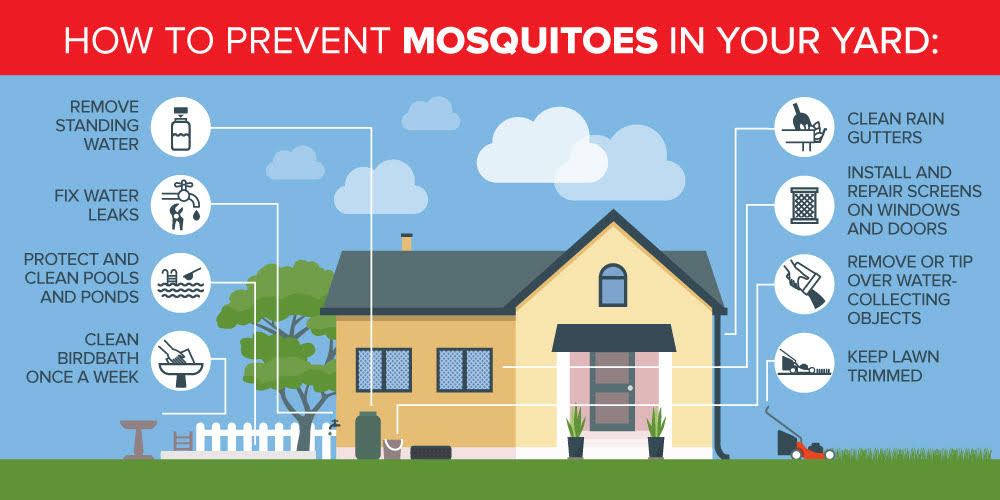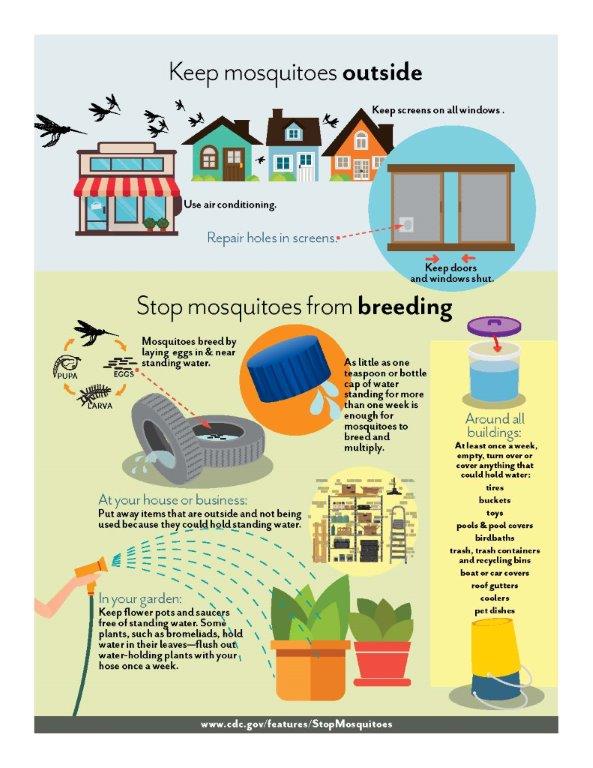Mosquito Prevention
Facts About Mosquitoes...
* All mosquitoes MUST have water to complete their life cycle, which is why it is extremely important to drain any standing water from around your property.
* During warm weather, it takes from three to seven days for a mosquito to complete its life cycle (from egg to adult). So in as little as a week, you could be breeding mosquitoes in any stagnant water found around your property.
* Mosquitoes only lay their eggs in or near water; they do not develop in grass or shrubbery even though you see adult flying mosquitoes in these areas during the day. Some mosquitoes lay their eggs above water on soil in anticipation of a spring or summer flood event. Often nuisance mosquitoes are found around pastures where flooding occurs.
* Only the female mosquito bites.
* Some female mosquito species can survive over the winter to lay her eggs in spring. Female mosquitoes can lay hundreds of eggs at one time - this is called a "brood." Some mosquito species lay multiple broods each summer.
* Mosquitoes are attracted to people from exhaled carbon dioxide, odors and body heat.
* Some mosquitoes live their lives close to their breeding source, but others can fly up to 15 miles in their lifetime.
Mosquito About Myths...
Because of their ubiquitness, there are many misconceptions about mosquitoes some of the more common ones include:
• Bug zappers are effective against mosquitoes - bug zappers do not control mosquitoes and can reduce the populations of beneficial insects.
• Electronic repellers keep mosquitoes away - No they don't; save your money.
• Residential vegetation can produce mosquitoes - They may be resting in the vegetation, but standing water is required to "produce" mosquitoes.
• Bats, owls, and other birds can control mosquitoes - Although they may include mosquitoes in their diet, they do not consume enough mosquitoes to make an appreciable difference in their populations.
• Some mosquitoes can be 2 inches long. - They don't get that big, it was probably a crane fly.
• Mosquitoes nest in vegetation - Mosquitoes do not nest.
• Spraying for adults is the best method of mosquito control - Adulticiding is the least efficient method. Eliminating mosquitoes before they become adults is preferable. Most sprays only work if you hit the insect directly.
• Mosquitoes can transmit AIDS - False
• The Citrosa plant repells mosquitoes - Although citrosa oil (citronella) has been used widely as a mosquito repellent, the undisturbed plant itself does not release these oils and is thus not effective as a repellent.
*Facts & Myths courtsey of Roberts Mosquito Abatement, find more information on their Website


